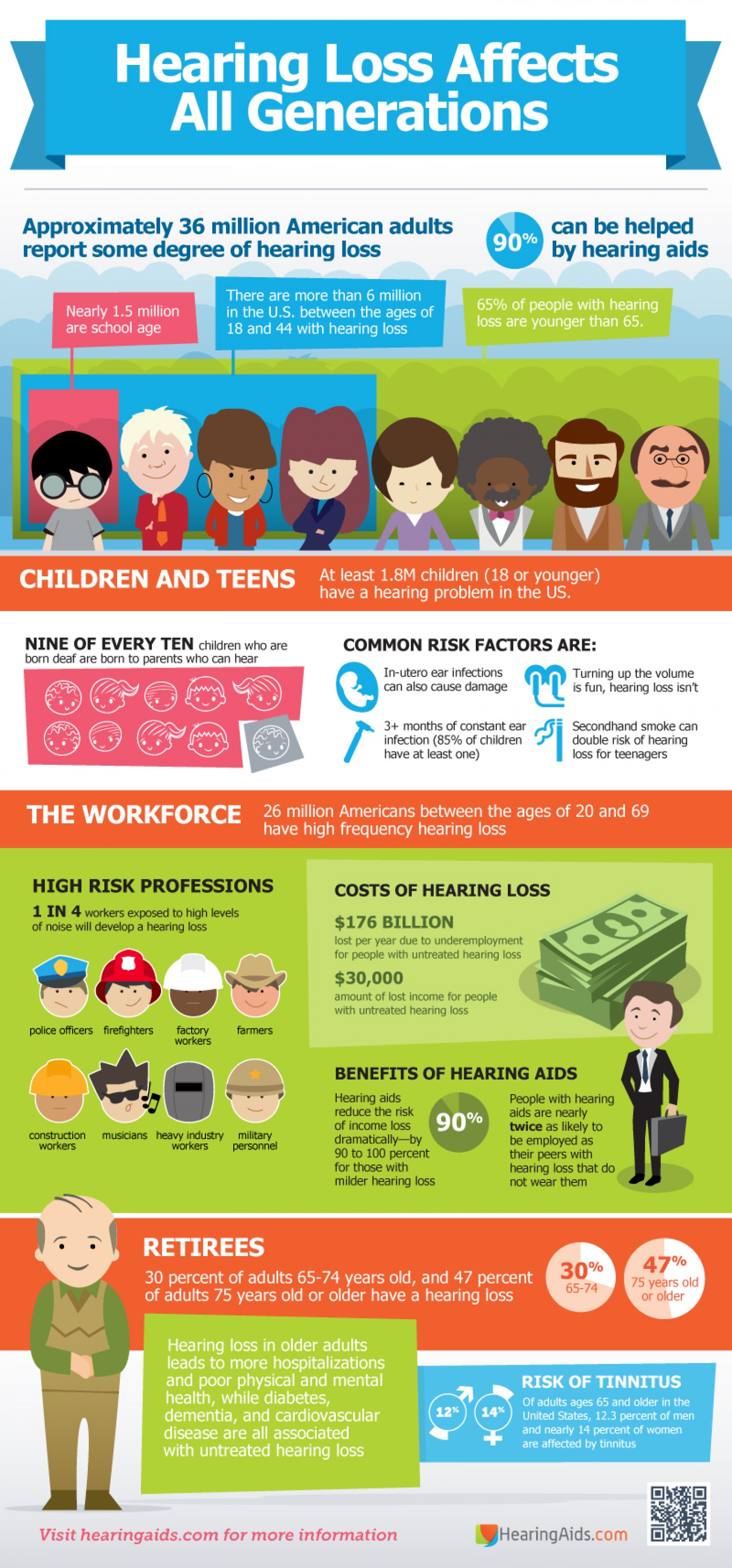
Hearing Loss Affects All Generations
Our modern lifestyle is detrimental to our hearing. While the effects may not be noticeable at the start, soon the clamor of life will catch up to us all. It is estimated that by 2015, the total number of people who suffer from hearing loss of over 25dB will be more than 700 million. In the United States alone, hearing loss is projected to affect 40 million people by 2025, and by 2050 reach almost 53 million. In the United States, hearing loss is the third largest widespread chronic condition.
Statistics of Hearing Loss
These numbers aren’t just for the adults. In the United States, at least 1.8 million children have hearing problems, and over 6 million are between the ages of 18 and 44. Of these suffering some degree of hearing loss, 90 percent can be helped by the use of a hearing aid. As nine out of ten children who are born deaf are born to parents who can hear, it is important to understand the risks we take every day that can damage our hearing. Young children who suffer from length ear infections of three or more months, extreme volume exposure in music, or secondhand smoke can all increase the risk of hearing loss for children and teenagers.
Hearing Loss Due to High Frequency
Premature hearing loss isn’t found only in unruly teenagers either. Because of high risk professions, 26 million Americans between the ages of 20 and 69 have high frequency hearing loss. Some of these include heavy industry workers, farmers, and military personnel. This can cause a major problem in the workplace, and approximately $30,000 is lost in income by workers with untreated hearing loss. These people can easily become underemployed, but this issue can be resolved with the use of hearing aids.
Hearing Aids Are Good
People with hearing aids are almost two times more likely to be employed than their peers with hearing loss that do not regularly use hearing aids. As technology develops, the selection of hearing aids has expanded astronomically. While most hearing aids mimic the same electronic components, there are multiple style varieties, as well as the conversion of sound using analog or digital technology. Based on the severity and type of hearing loss, the selection of hearing aids can vary. This helps to optimize the listening needs and lifestyle of the patient.
Related Conditions Due to Hearing Loss
There are many physical and mental health conditions that are associated with the loss of hearing in retirees. Nearly half of adults over the age of 75 have some form of hearing loss, and this can lead to more hospitalizations associated with dementia, diabetes, and cardiovascular disease if their hearing loss remains untreated.
While the majority of hearing loss is genetic, it is important to remember to minimize the negative impacts of your environment. You can’t reverse hearing loss. The best you can hope for is to improve upon what you have left.